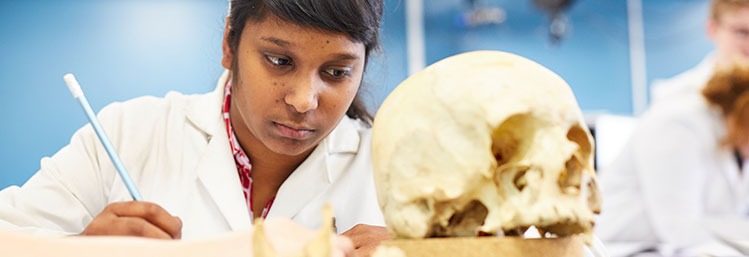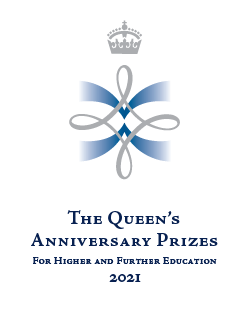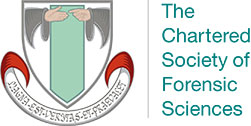
Forensic Anthropology
BSc (Hons)
- Typical offer for 2025
- Duration
- UCAS code
Suitable for applications.
My favourite part of the course is definitely the anthropology. The content is incredibly interesting and when you take in the fact that the School of Archaeological and Forensic Sciences has the largest collection of human skeletal remains in an archaeology department in the UK, you are stuck for picking out flaws.
Placement Year
You can spend a year in a laboratory environment as a paid employee of an approved organisation.
This experience allows you to apply theoretical knowledge to practical problems, learn about work practices, and improve your career prospects.
Learning and assessment
You will learn through a mixture of lectures, seminars, laboratory and field practicals, workshops, case studies and directed study. Directed study will include directed reading of selected textbooks, specified source literature and open learning materials, directed web-based materials, report writing and other assignments. There will also be an individual project/dissertation.
You will be assessed by written closed-book examinations using constructed (essays, short answers) and selected response (MCQ) questions and a variety of coursework assignments, including laboratory reports, oral presentations and dissertations.
There will also be involvement in laboratory, small-group workshops, case-based work and projects (individual and small group). You will be assessed by critical appraisal, case analysis and critique, case presentations, laboratory reports and dissertations.
The research dissertation develops your ability to undertake independent research and plan this research effectively. Presentations, the witness statement and the mock court exercise will develop your professional oral and written presentation skills.
University of Bradford honoured with Queen’s Anniversary Prize for outstanding archaeology
We have been awarded a 2021 Queen's Anniversary Prize for Higher and Further Education for our world-leading work in developing archaeological technology and techniques and its influence on practice, policy and society.
The prestigious accolade, which honours world-class excellence and achievement, is the highest form of national recognition that UK higher education institutions can achieve. The University has been honoured for its leadership and innovation in pioneering the techniques, technology and practices of archaeology both in the UK and worldwide.

Study support
Our comprehensive support services will help you to achieve your full potential – both academically and personally.
We provide all you need to make the very best of your time with us, and successfully progress through your studies and on into the world of graduate employment.
Our support services include:
- Personal tutors
- Disability services
- Counselling services
- MyBradford student support centres
- The Students’ Union
- Chaplaincy and faith advisers
- An on-campus nursery
- Halls wardens
We have well-stocked libraries and excellent IT facilities across campus. These facilities are open 24 hours a day during term time, meaning you’ll always find a place to get things done on campus.
Our Academic Skills Advice Service will work with you to develop your academic, interpersonal and transferable skills.


